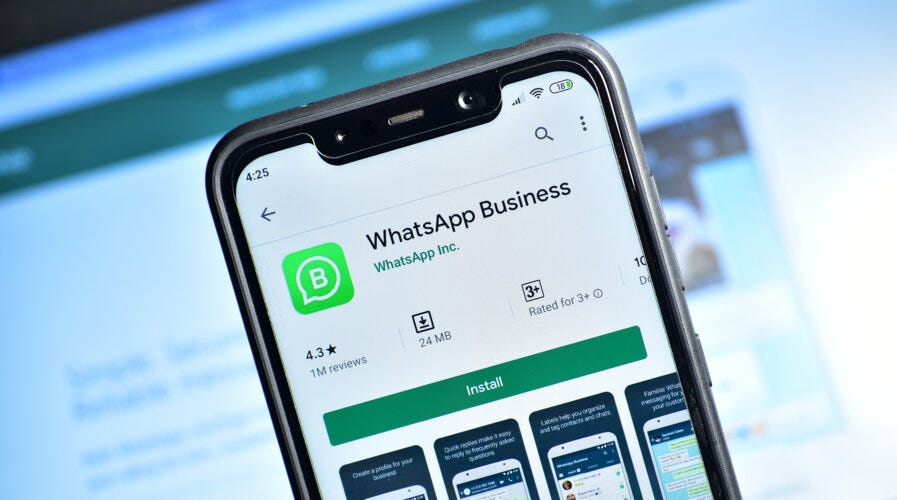Balancing Automated Messages with Personalized Communication in WhatsApp Marketing Campaigns

In the digital age, maintaining effective communication with customers is paramount. WhatsApp, a widely-used messaging platform, presents businesses with an unparalleled opportunity to engage with their audience. However, the challenge lies in balancing automated messages with personalized communication in WhatsApp marketing campaigns. This delicate balance ensures that businesses can leverage the efficiency of automation while maintaining a personal touch that resonates with customers.
Understanding WhatsApp Marketing
WhatsApp marketing involves leveraging the platform to promote products, engage customers, and build brand loyalty. The appeal of WhatsApp lies in its massive user base and high engagement rates, making it an ideal medium for businesses, including software companies near me, to connect with their audience. A successful WhatsApp marketing campaign requires a strategic blend of various elements to achieve the desired results.
Types of Content on WhatsApp
Understanding the types of content on WhatsApp that can be utilized in marketing campaigns is essential. These include:
- Text Messages: Simple and direct communication that can be automated for repetitive queries or updates.
- Images and Videos: Visual content that captures attention and enhances engagement.
- Audio Messages: Personalized voice notes that add a human touch to interactions.
- Documents and Links: Providing detailed information or directing customers to relevant web pages.
- Interactive Buttons: Facilitating quick responses and streamlined customer actions.
By leveraging these diverse content types, businesses can create dynamic and engaging WhatsApp marketing messages.
The Role of WhatsApp Marketing Automation
WhatsApp marketing automation refers to the use of software and tools to send automated messages to customers. This automation can significantly enhance the efficiency of a marketing campaign by ensuring timely and consistent communication. Key benefits include:
- Time Efficiency: Automating repetitive tasks frees up time for more strategic activities.
- Consistency: Ensuring that every customer receives the same high-quality communication.
- Scalability: Easily managing large volumes of messages without compromising on quality.
To achieve these benefits, businesses can utilize various WhatsApp marketing tools and software for WhatsApp marketing.
Implementing WhatsApp Marketing Tools
There are numerous WhatsApp marketing tools available that facilitate automation and enhance campaign effectiveness. These tools offer features such as:
- Bulk Messaging: Sending messages to a large number of recipients simultaneously.
- Message Scheduling: Pre-scheduling messages to be sent at optimal times.
- Template Management: Creating and managing message templates for consistent communication.
- Analytics and Reporting: Tracking the performance of messages and campaigns to optimize future efforts.
Utilizing a bulk WhatsApp marketing service can further streamline the process by handling large-scale message distribution efficiently.

Setting WhatsApp Goals
Clear objectives are crucial for any WhatsApp marketing campaign. Businesses should define specific WhatsApp goals such as:
- Increasing Customer Engagement: Enhancing interaction and engagement rates.
- Driving Sales: Encouraging customers to make purchases through targeted promotions.
- Improving Customer Support: Providing timely and efficient customer service.
- Building Brand Awareness: Increasing brand visibility and recognition.
By setting measurable goals, businesses can effectively evaluate the success of their campaigns and make necessary adjustments.
Balancing Automation with Personalization
While automation offers numerous benefits, over-reliance on WhatsApp marketing messages can lead to a lack of personalization, which may alienate customers. Striking the right balance between automated and personalized communication is key.
Strategies for Balancing Automation and Personalization
- Segmentation: Dividing the audience into smaller, targeted segments allows for more personalized communication. Automated messages can be tailored to the specific needs and interests of each segment.
- Personalized Templates: Utilizing customizable templates for automated messages ensures that the communication feels more personal and relevant to the recipient.
- Customer Data Integration: Integrating customer data from CRM systems enables more personalized interactions. Automated messages can be customized based on the recipient’s past interactions and preferences.
- Two-Way Communication: Encouraging customer responses and feedback ensures that the communication remains interactive and engaging. Automated responses can be followed up with personalized replies to maintain a human touch.
- Regular Updates and Follow-Ups: Combining automated updates with personalized follow-ups ensures that customers feel valued and heard.
Problem-Solving Solutions
To effectively balance automated messages with personalized communication, businesses can adopt several problem-solving solutions:
- Use of AI and Machine Learning: Leveraging AI and machine learning to analyze customer behavior and preferences allows for more personalized automated messages.
- Feedback Loops: Implementing feedback loops to continuously gather customer feedback helps in refining and personalizing automated messages.
- A/B Testing: Conducting A/B testing on automated messages to determine the most effective communication strategies.
- Integration with Other Platforms: Integrating WhatsApp with other marketing platforms ensures a cohesive and personalized customer experience across all channels.
Case Study: Successful WhatsApp Marketing Campaign
To illustrate the effectiveness of balancing automated messages with personalized communication, consider the following case study:
A retail brand implemented a bulk WhatsApp marketing strategy to promote their new product line. They utilized automated messages to send out promotional offers and updates to their entire customer base. Simultaneously, they segmented their audience based on purchase history and preferences, sending personalized recommendations to each segment.
The campaign achieved the following results:
- Increased Engagement: The personalized recommendations led to a 40% increase in customer engagement.
- Higher Conversion Rates: The targeted promotions resulted in a 25% increase in sales.
- Improved Customer Satisfaction: The combination of automated and personalized communication led to higher customer satisfaction ratings.
Conclusion
In conclusion, balancing automated messages with personalized communication is crucial for the success of a WhatsApp marketing campaign. By leveraging the right software for WhatsApp marketing, setting clear goals, and adopting effective strategies, businesses can enhance customer engagement, drive sales, and build brand loyalty. The key lies in striking the perfect balance between efficiency and personalization, ensuring that every customer interaction feels meaningful and valued. By following the outlined strategies and solutions, businesses can navigate the complexities of WhatsApp marketing and achieve their marketing objectives effectively. For more expert guidance and tailored solutions, visit The HubOps. Let us help you optimize your WhatsApp marketing strategy for maximum impact.


Comments
Post a Comment